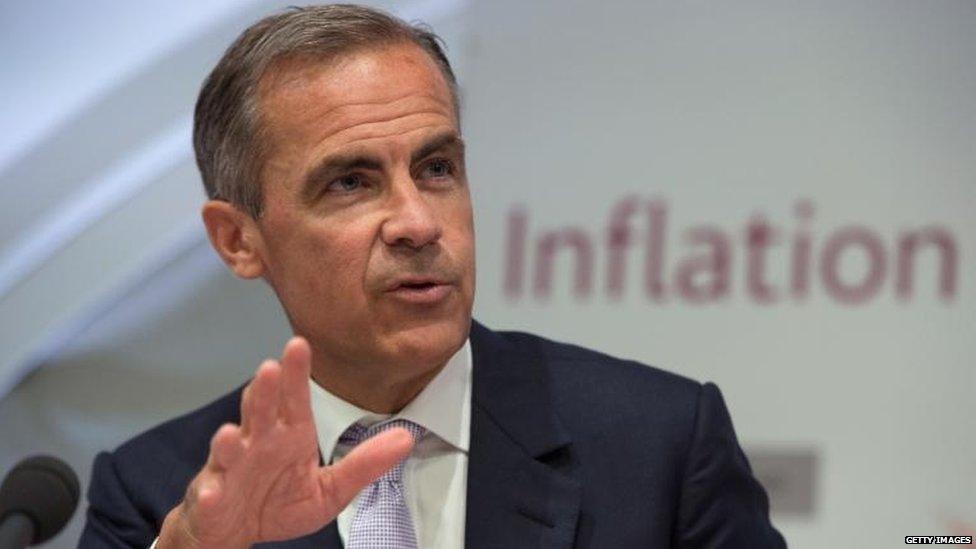Inflation tiny not nil
- Published
- comments

Bank of England governor Mark Carney has hinted that rates could begin to rise early next year
You may find this shocking, but it is probable that the governor of the Bank of England hasn't cried wolf about interest rates being likely to rise fairly early in the new year.
Because the latest CPI inflation figures show that in spite of continued falls in energy and food prices, there is the minutest amount of inflation in the system, where many thought there was none: CPI inflation rose 0.1% in July.
As for so-called core inflation, that rose from 0.8% in June to 1.2%.
Now although I know we are supposed to think this core measure is what we should get desperately excited about, because it screens out more volatile items, the yo-yoing items are the things we spend most of our money on - food, alcoholic beverages, energy and tobacco - so I find it quite hard to take it too seriously.
They are the items which matter most, for example, to those on lowest incomes.
What's more, those excluded items signal deflationary tendencies in the world as a whole - and in particular they tell us that the slowdown in China and emerging markets is an important phenomenon, for all of us.
That said these deflationary pressures are being offset by the increase in our spending power - with wages significantly outstripping prices rise - which is encouraging us to buy a bit more.
The rise in core inflation tells us that domestic demand for goods and services, from consumers and businesses, is reasonably robust. Which is a good thing: it underpins our economic recovery.
But that return of core inflation to the levels we saw in February doesn't signal that we face a sudden explosive burst in inflation.
Equally, rampant inflation does not seem to me to be the main implication of the single factor that prevented inflation remaining flat or going negative again: prices for clothing and footwear fell 3.4% between June and July, smaller than 5.7% drop in the equivalent period last year/
It is probably an encouraging sign that retailers felt confident enough to cut their prices less than they did last year, but that is not exactly redolent of soaraway inflation.
All of which suggests that the governor's recent nods to a 0.25% increase around March next year in the interest rate set by the Bank of England does not need amending - because today's figures reinforce the idea that inflation is heading back to the 2% target in around two years.
That said, a big uncertainty has been created by the growing evidence of the slowdown in China, and China's decision to export falling prices through a devaluation.
So although Mark Carney may be feeling comfortable today that he sent an appropriate signal to us about the timing and quantum of a first interest rate rise since 2009, a further deferral - due to the import of Chinese disinflation - is not impossible.